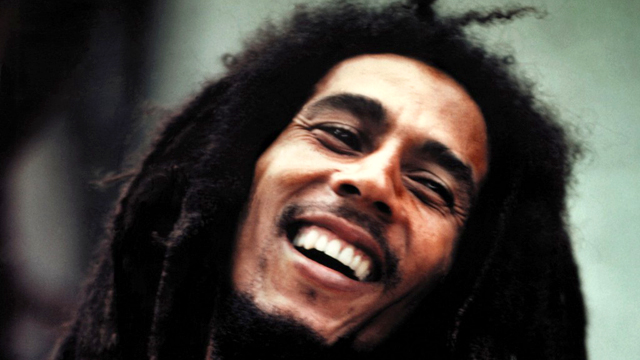
Kevin MacDonald’s highly anticipated documentary on the life, times and considerable legacy of the man many consider to be the physical manifestation of reggae music itself has finally arrived — and just in time for 4/20 (a term, pronounced “four-twenty,” that refers to the “consumption of cannabis,” as Wikipedia describes in its usual stone-faced seriousness). MacDonald’s film is endearing and (at a running time of 2.5 hours) exhaustive, but the filmmaker’s trademark fighting spirit takes a backseat to a sense of groovy reverence, turning Marley into an examination of a myth rather than a man.
Robert Nesta Marley was a Jamaican singer-songwriter best known for being the rhythm guitarist, lead singer and seemingly tireless frontman of Bob Marley & the Wailers, a band that played ska, rocksteady and reggae music from 1963 until Marley’s death in 1981 at the age of 36. He’s without a doubt one of the most influential (and mysterious) artists of the 20th century; MacDonald propels him into the realm of legend by almost breathlessly pointing out that he’s “known by more people around the world than Elvis Presley, Michael Jackson or The Beatles.” MacDonald holds nothing back in expressing the awe and wonder that he (and millions of others) feel in the presence of Marley, and somewhat unfortunately it’s that sense of worship that keeps the film’s subject up on the altar — and at arm’s length, if not further.
That’s not to say that the film isn’t enjoyable, playful, inspiring and even often insightful. The film’s first third is probably the best as it chronicles Marley’s little-known “origin story,” starting with his childhood in the village of Nine Mile in Saint Ann Parish, Jamaica as the son of a Royal Marines captain and a native Jamaican 42 years his junior (this “mixed marriage” never caused Marley to question his own racial identity; he was, as he himself described, “on God’s side, not on the white side or the black side”). Young Marley was fascinated by music almost from the day he was born, making musical instruments out of whatever materials he could find and turning phrases he would overhear in his classroom into song lyrics. We see Marley’s move to Trenchtown, the shanty town in Kingston that is considered the birthplace of reggae and ska music — and is, of course, the birthplace of the musical phenomenon that would come to be known as Bob Marley & the Wailers, a collective that briefly started out as a rock n’ roll cover band and soon became something much, much more.
MacDonald has also gathered an incredible “Who’s Who” of the various figures in Marley’s life — his family, his friends, his colleagues and his fans. The past — at least the darker chapters of it — seems to have been forgiven and forgotten, as everyone has nothing but good things to say about the fallen Wailer. It’s fascinating to hear some of these stories, particularly those from Rita Marley, Bob’s wife and self-described “guardian angel” who has since swallowed the pain and humiliation brought on by her husband’s epic infidelities (he ultimately fathered 11 children from seven different lovers). Some of Bob’s lovers (including Cindy Breakspeare, the former Miss World, jazz musician and mother of Damian Marley) are also interviewed, as are some former band members; indeed, if any of these people have any complaints or grievances about Marley, they’re staying true to the film’s reverential spirit and keeping it to themselves.
And then there’s the concert footage, which is, rather expectedly, the most rousing aspect of Marley. Even tried and true Wailers fans will be roused and thrilled by some of the incredible performances and renditions from a set list that includes “Stir It Up,” “I Shot the Sheriff,” “No Woman, No Cry” and “One Love,” among many others. What’s most striking about the concert scenes is how you really get a sense of just how in sync these guys were; every member seems to be communicating with each other almost telepathically, turning a musical ensemble of individual parts and specific talents into one crowd-pleasing, awe-inspiring “Jammin'” entity. When you see this one-of-a-kind band at work, it’s no wonder that MacDonald was inspired to take such a reverential approach to their legacy — and to that of their leader’s.
And yet, even with a running time of 144 minutes, you’re left with wanting a little more. MacDonald usually isn’t one to shy away from the gritty details and the hard truths, as he’s shown in both his documentary work (Touching the Void and especially One Day in September) and his feature films (The Last King of Scotland and State of Play). A little more, dare I suggest, dirt on Bob Marley — on what made him really tick, warts and all — would’ve made Marley a complete portrait of a man and artist, not just an intricate exploration of a legend (albeit an extremely enjoyable one). Ultimately, that might be the point, though — as Bob Marley, and his belief in love, freedom and expression, is for everyone, maybe we’re only meant to know the face, the voice and the message rather than the actual flesh-and-blood person. . . and maybe that’s enough.
Maybe.